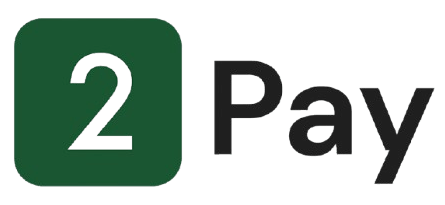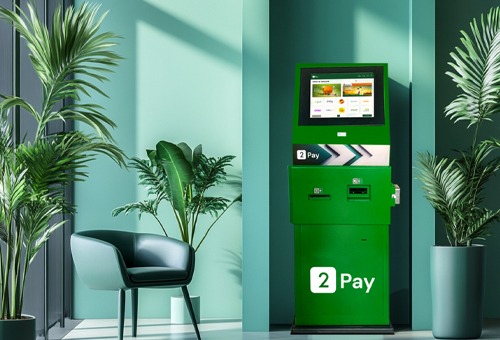Introduction
Cash kiosks in Pakistan are transforming the financial landscape by delivering banking services—such as cash in/out, bill payments, mobile top-ups, and fund transfers—via self-service or agent-assisted terminals. This innovative approach, also known as branchless banking, aims to bring banking services to underserved communities, bridging gaps in financial inclusion.
1. What Is a Cash Kiosk?
A cash kiosk in Pakistan refers to a self-service kiosk or an agent-managed Customer Service Point (CSP) that allows users to conduct financial transactions such as depositing or withdrawing cash, paying utility bills, and opening accounts—without needing to visit a traditional bank branch. Often located within local shops, markets, or rural settings, they are powered by digital infrastructure and biometric authentication for secure operations Bloom Pakistan.
2. Key Services Offered
Cash kiosks provide an array of kiosk banking services tailored to everyday needs:
- Account Opening: Customers can open basic savings accounts using NADRA-based biometric verification with no minimum balance requirement Bloom Pakistan.
- Cash Deposit & Withdrawal: Secure cash in/cash out via fingerprint authentication.
- Fund Transfers: Instant money transfers via RAAST and 1LINK payment networks Bloom Pakistan.
- Utility Bill Payments & Mobile Top-Ups: Pay electricity, gas, water bills, recharge mobile numbers and more Bloom Pakistan2 Pay.
- Loan Disbursement/Repayment & Insurance: Microfinance services and insurance programs processed through kiosks Bloom Pakistan.
- Balance Inquiry & Mini Statements: Real-time access to account data.
Some kiosks, like 2Pay, offer simplified, cash-based digital payments without needing a bank account or mobile wallet, starting rollout in Lahore with plans to expand those services nationwide Economy.pk.
3. Infrastructure & Technology
Cash kiosks rely on several technological components:
- Biometric Devices: Fingerprint scanners integrated with NADRA for identity verification Bloom PakistanNADRA.
- POS and Touchscreens: Interactive interfaces for guided transactions.
- Cash Acceptors/Dispenser Units: Including Cash Deposit Machines (CDMs) that accept bulk deposits efficiently IRMCS AsiaWavetec.
- Thermal Printers: For transaction receipts.
- Banking Software & Real-time Connectivity: Linked to bank servers and digital payment systems like RAAST Bloom PakistanNADRA.
Some advanced kiosks also support facial recognition, live video assistance, and cash recycling, blending modern convenience with security IRMCS Asia.
4. Deployment by Leading Institutions
Several banks and telecom operators in Pakistan have embraced cash kiosks:
- Faysal Bank deployed Azimut’s CQuick kiosks for bulk deposits and cash handling automation—initial phase included 20 machines Wavetec.
- Bank Alfalah rolled out Wavetec’s CDMs across over 200 branches, enabling features like bulk deposits, biometric access, and contactless, cardless operations IRMCS Asia.
- Telenor Pakistan, via Wavetec, deployed self-service telecom kiosks in major cities. These facilitate SIM dispensing, bill payments, load top-ups, and balance transfers—operational 24/7 IRMCS Asia.
- The NADRA e-Sahulat kiosks offer online services such as bill payments and cash disbursements, secured through encrypted connections and established across public spaces NADRA.
- The 2Pay kiosks are Pakistan’s pioneering cash-based digital payment terminals, facilitating utility payments and mobile top-ups without requiring banking infrastructure Economy.pk2 Pay.
5. Regulatory Environment
The State Bank of Pakistan (SBP) governs branchless banking through its latest regulations, enforcing:
- Mandatory Biometric Verification for deposit and withdrawal transactions.
- Agent Onboarding & Training Standards to ensure service reliability.
- Daily Transaction Limits, typically ranging from PKR 10,000 to PKR 50,000 Bloom Pakistan.
- RAAST Integration: Required for real-time digital transfers.
- Cybersecurity Requirements: Including encryption, fraud monitoring, and data safeguarding Bloom Pakistan.
These measures help protect users while standardizing operations across providers.
6. Benefits of Cash Kiosks
For Users:
- Improved Access: Especially for rural, semi-urban, and unbanked populations.
- Cost Efficiency: No/minimum balance requirements and lower fees.
- Extended Availability: Often available beyond normal banking hours.
- Enhanced Security: Biometric authentication reduces fraud risk.
- Convenience: Quick processing without needing to visit branches.
For Institutions & Agents:
- Lower Operational Costs: Less need for full-fledged branches.
- Expanded Reach: Access new markets with minimal capital investment.
- Agent Revenue Streams: Commission-based earnings per transaction.
- Promoting Digital Inclusion: Supports national goals of financial inclusion.
7. Overcoming Challenges
| Challenge | Solution |
| Limited Internet Connectivity | Offline syncing and mobile data fallback systems. |
| Low Digital Literacy | Community awareness and training campaigns. |
| Agent Training Deficiencies | Formal onboarding, digital literacy, and fraud prevention training. |
| Transaction Limits | Offering tiered accounts with higher limits for verified users. |
These strategies support smoother adoption across diverse regions Bloom Pakistan.
8. Role of Digital Payment Networks & Fintech
- RAAST: Pakistan’s national real-time payment system, enabling instant transfers and integrating smoothly with kiosk transactions Bloom Pakistan.
- Fintech Platforms: Services like Easypaisa, JazzCash, and 2Pay facilitate expanded utility—bill payments, mobile wallet services, and microfinance features—through kiosks and mobile channels Bloom PakistanEconomy.pk.
These systems further boost digital adoption by complementing kiosk infrastructure.
9. Cultural and Contextual Factors
While digital payment systems are gaining momentum, cash remains deeply rooted in everyday transactions in Pakistan. As one user shared:
“Karachi has a lot of cash only culture.”
“Almost everyone I’ve interacted with have JazzCash or EasyPaisa. Never had any issue but having cash.”
Reddit
That underscores the importance and relevance of cash kiosks in enabling digital inclusion without forcing a cashless transition.
10. The Road Ahead: Towards a Digital Future
Pakistan’s kiosk banking ecosystem is rapidly evolving. Central bank initiatives, fintech innovations, and public trust are aligning to extend coverage across geographies.
- 2Pay is pioneering cash-based digital payments without bank accounts Economy.pk.
- Bank networks like Faysal Bank and Bank Alfalah continue expanding self-service infrastructure nationally WavetecIRMCS Asia.
- Telecoms like Telenor are enhancing financial access through self-service platforms IRMCS Asia.
Overcoming infrastructural and literacy challenges will be key. When network coverage improves and digital literacy spreads, kiosks can become instrumental in moving Pakistan toward a less cash-dependent, more inclusive economy.
Conclusion
Cash kiosk Pakistan models offer a powerful fusion of accessibility, affordability, and security—all within a digital context. Whether through branchless banking kiosks, CDMs, NADRA e-Sahulat, or 2Pay terminals, these self-service hubs are revolutionizing how people interact with financial services.
By combining innovative infrastructure (like biometrics and real-time systems) with widely accessible agents and public spaces, cash kiosks are ushering Pakistan toward broader financial inclusion. Banks, fintechs, and regulators must continue collaborating to scale these models—ensuring every user, regardless of location or background, can partake in the digital economy.
Frequently Asked Questions (FAQs) about Cash Kiosk Pakistan
1. What is a cash kiosk in Pakistan?
A cash kiosk in Pakistan is a self-service or agent-assisted terminal that allows users to perform banking and financial transactions like cash deposit, withdrawal, utility bill payment, mobile top-up, and money transfer without visiting a bank branch. These kiosks are part of branchless banking services supported by banks, telecom companies, and fintech providers.
2. How do cash kiosks work?
Cash kiosks work by integrating biometric verification (NADRA), cash acceptor/dispenser units, and secure banking software. Customers verify their identity via fingerprint, choose a transaction (deposit, withdrawal, transfer, etc.), and the machine processes it in real-time, often linked with RAAST or 1LINK networks.
3. What services can I access at a cash kiosk?
Cash kiosks in Pakistan typically allow:
- Account opening (via biometric KYC)
- Cash deposit & withdrawal
- Fund transfers via RAAST and 1LINK
- Utility bill payments (electricity, gas, water, internet)
- Mobile recharge/top-ups
- Loan repayment and microfinance disbursement
- Balance inquiry and mini statements
- Insurance premium payments
4. Is a cash kiosk the same as an ATM?
Not exactly. While both handle cash transactions, a cash kiosk offers additional services such as bill payments, mobile top-ups, biometric verification, and account opening, whereas an ATM (Automated Teller Machine) is mainly used for withdrawals, balance checks, and limited deposits.
5. Are cash kiosks safe to use?
Yes, cash kiosks in Pakistan use biometric authentication, PINs, encrypted connections, and real-time monitoring to ensure safety. Since transactions are linked to the customer’s NADRA ID, the chances of fraud are reduced significantly compared to traditional cash handling.
6. Who can use cash kiosks in Pakistan?
Anyone with a valid CNIC (Computerized National Identity Card) can access cash kiosk services. Some kiosks also support customers without a formal bank account through branchless banking wallets or platforms like 2Pay, Easypaisa, and JazzCash.
7. What are the transaction limits at a cash kiosk?
Transaction limits depend on the provider and State Bank of Pakistan regulations. For example:
- Daily withdrawal/deposit limits usually range from PKR 10,000 – PKR 50,000.
- Higher limits may be available for verified accounts.
8. Where can I find a cash kiosk in Pakistan?
Cash kiosks are located in:
- Bank branches (Faysal Bank, Bank Alfalah, etc.)
- Telecom franchises (Telenor, Jazz, Zong)
- Retail outlets and markets
- NADRA e-Sahulat centers
- Standalone 2Pay kiosks in cities like Lahore, with expansion nationwide
9. What is the difference between a cash kiosk and branchless banking agents?
- Cash kiosk: Self-service machine with automated functions (deposit, withdrawal, bill payment, etc.).
- Branchless banking agent: A human representative at a shop or outlet who uses POS devices to process transactions on behalf of the customer.

